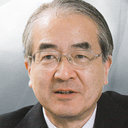Although dual antiplatelet therapy with aspirin and clopidogrel reduces early recurrence of ischaemic stroke, with long-term use this type of therapy is no longer effective and the risk of bleeding increases. Given that cilostazol prevents stroke recurrence without increasing the incidence of serious bleeding compared with aspirin, we aimed to establish whether dual antiplatelet therapy involving cilostazol is safe and appropriate for long-term use.In a multicentre, open-label, randomised controlled trial across 292 hospitals in Japan, patients with high-risk non-cardioembolic ischaemic stroke identified on MRI were randomly assigned to two groups in a 1:1 ratio to receive monotherapy with either oral aspirin (81 or 100 mg, once per day) or clopidogrel (50 or 75 mg, once per day) alone, or a combination of cilostazol (100 mg, twice per day) with aspirin or clopidogrel. Randomisation was done centrally (using block randomisation with a block size of six per each participating hospital) through a web-based registration system and was done by EPS Corporation. The patients were required to have at least 50% stenosis of a major intracranial or extracranial artery or two or more of the vascular risk factors. Trial medication was continued for half a year or longer, for a maximum of 3·5 years. The primary efficacy outcome was the rate of first recurrence of symptomatic ischaemic stroke. Safety outcomes were severe or life-threatening bleeding; any adverse events; serious adverse events; and any bleeding events. Efficacy analyses were done in the intention-to-treat population and safety analyses were done in the as-treated population. This trial was registered with ClinicalTrials.gov (number NCT01995370) and UMIN Clinical Trials Registry (number 000012180).Participants were recruited from Dec 13, 2013, to March 31, 2017. 932 patients assigned to the dual therapy group and 947 patients assigned to the monotherapy group were included in the intention-to-treat analysis. The trial was stopped after the enrolment of 1884 patients of an anticipated 4000 patients because of the delay in recruitment. Ischaemic stroke recurred in 29 (3%) of 932 patients (annualised rate 2·2%) on dual therapy including cilostazol and 64 (7%) of 947 patients (annualised rate 4·5%) on monotherapy during a median 1·4 years follow-up (hazard ratio [HR] 0·49, 95% CI 0·31-0·76, p=0·0010). Severe or life-threatening bleeding occurred in eight patients (annualised rate 0·6%) on dual therapy and 13 patients (annualised rate 0·9%) on monotherapy (HR 0·66, 95% CI 0·27-1·60, p=0·35). Occurrence of any type of adverse event was similar between the groups (255 [28%] of 910 patients in the dual therapy group vs 219 [24%] of 921 patients in the monotherapy group); as was occurrence of serious adverse events (87 [10%] vs 142 [15%]) and bleeding events (38 [4%] vs 33 [4%]). Gastrointestinal bleeding, which affected nine (<1%) of 910 patients in the monotherapy group and nine (<1%) of 921 patients in the dual therapy group, was the most common type of bleeding.The combination of cilostazol with aspirin or clopidogrel had a reduced incidence of ischaemic stroke recurrence and a similar risk of severe or life-threatening bleeding compared with treatment with aspirin or clopidogrel alone in patients at high risk for recurrent ischaemic stroke.Otsuka Pharmaceutical.


